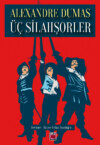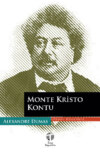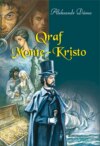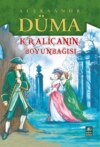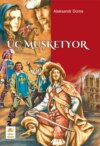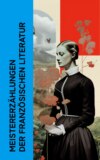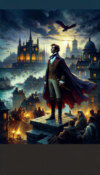Kitabı oku: «The Last Vendée», sayfa 48
"Very good; but where will you find a lonelier place than this?"
"We must find one. If I knew of an open desert in the neighborhood I'd go there and speak low. But, for want of a desert, we'll find some place where we are certain of being alone."
"Go on; I'll follow you."
XXXVI.
JUDAS AND JUDAS
It was toward the great middle tower that Courtin now guided his companion, not without stopping once or twice to listen; for, whether it was reality or fancy, the mayor of La Logerie thought he saw shadows gliding near them. But as Monsieur Hyacinthe reassured him after every pause, he ended by thinking it an effect of imagination; and when they reached the tower he opened a door, entered first, took from his pocket a wax candle and a sulphur match, lighted the candle and carried it cautiously into all the corners and angularities of the room to make sure that no one was hidden there.
A door, cut in the wall to the right and partly broken down by the rubbish of the ceiling, excited his fears and also his curiosity. He pushed it open and found himself in front of a yawning space from which a damp vapor was rising.
"Look there!" said Monsieur Hyacinthe, who followed him, showing Courtin a wide breach in the outer wall, through which they could see the lake sparkling in the moonlight. "Look at that!"
"I see it plain enough," said Courtin, laughing. "Yes, Mère Chompré's dairy needs repairing; since I was here last the hole in that wall is double the size it used to be. One might get a boat in now."
Raising his light and holding it outward he tried to look into the depths below; not succeeding, he took a stone and flung it into the water, where it fell with a sonorous noise that sounded like a threat, while the wash of the ruffled water against the steps and the foundations gave an answering ripple.
"Well," said Courtin, "there is evidently nothing there that can hear us but the fish of the lake; and the old proverb says, you know, 'Mute as a fish.'"
Just then a stone came rolling down from the roof along the tower wall and fell into the courtyard.
"Did you hear that?" asked Monsieur Hyacinthe, uneasily.
"Yes," replied Courtin. Unlike his companion, who seemed to grow more timorous in the gigantic shadow thrown by the ruins, the farmer recovered courage after convincing himself that no human being could possibly be lurking in the courtyard. "I've seen large bits of masonry fall from the top of that old tower just from the blow of a bat's wing."
"Hé, hé!" exclaimed Monsieur Hyacinthe, with his nasal laugh, which was like that of a German Jew; "it is precisely the night-birds we have to fear."
"Yes, the Chouans," replied Courtin. "But no! these ruins are too near the village; and though a villain I thought I had got rid of has been seen roaming about here to-day, I feel sure he won't dare to risk a visit by night."
"Put out your light, then!"
"No, no; we don't need it to talk by, that's true, but we have something else to do than talk, I'm thinking."
"Have we?" said Monsieur Hyacinthe, eagerly.
"Yes. Come into this recess, where we shall be sheltered, and where the light can be hidden."
So saying he led Monsieur Hyacinthe beneath the archway that led down to the gate of the cellars, placed the light behind a fallen stone, and sat down himself on the cellar steps.
"Do you mean to say," said Monsieur Hyacinthe, planting himself in front of Courtin, "that you are going to give me the name of the street and the number of the house in which the duchess is hidden?"
"That, or something like it," replied Courtin, who had heard the clinking of gold on Monsieur Hyacinthe's person, his eyes sparkling with greed.
"Come, don't lose time in useless words. Do you know where she is living?"
"No."
"Then why have you brought me here? Ha! if I have a regret it is that I ever committed myself to a dawdler like you."
For all answer Courtin took the paper he had picked from the ashes of the hearth in the rue du Marché and held it out to Monsieur Hyacinthe, raising the light that he might see to read it.
"Who wrote that?" asked the Jew.
"The young girl I told you about, who was with the person we are in search of."
"Yes, but she is not with her now."
"That is true."
"Therefore I should be glad to know what good this letter is. What does it prove? How can it help our purpose?"
Courtin shrugged his shoulders and replaced the candle beside the stone.
"Really, for a city gentleman," he said, "you are not very sharp."
"What do you mean by that?"
"Don't you see that the duchess offers an asylum to the man to whom the letter is addressed, in case he is in any danger?"
"Yes, what next?"
"Next? Why, if we put him in danger he is certain to take it."
"And then?"
"Then we can search the house he goes to, and catch them all together."
Monsieur Hyacinthe reflected.
"Yes, the scheme is a good one," he said, turning the letter over and over in his hand and holding it near the candle to make sure it contained no other writing.
"I should think it was a good one!" exclaimed Courtin.
"Where does that man live?" asked Monsieur Hyacinthe, carelessly.
"Oh, as for telling you where he lives, that's another matter. I've told you the scheme, and you think it a good one, – you said so yourself; if I told you how to carry it out I should just be giving myself away for nothing."
"But suppose the man does not accept the retreat offered to him, and does not go to the house where she is hidden?" said Monsieur Hyacinthe.
"Oh, that's impossible if we follow a plan I'll explain to you. His own house has two issues. We go to one with a posse of soldiers; he escapes by the other, which we leave clear; he sees no danger that way, but we follow him from a distance. You see for yourself the thing can't fail. And now, unfasten your belt and pay me the money."
"Will you come with me?"
"Of course I will."
"From now till the game is played you will not leave me a single instant?"
"I don't wish to, inasmuch as you only pay me half now."
"But remember this," said Monsieur Hyacinthe, with a determination scarcely to be expected from his pacific demeanor, "I warn you that if you make even one suspicious gesture, if I have the slightest reason to think you are deceiving me, I will blow your brains out."
So saying Monsieur Hyacinths drew a pistol from his pocket and showed it to his companion. The face of the man who made the threat was cold and calm, but a dangerous flash in his eye convinced the other that he was a man to keep his word.
"As you please," said Courtin; "and all the easier for you because I have no weapon."
"That's a blunder," remarked Monsieur Hyacinthe.
"Come," said Courtin, "pay me what you promised, and swear to me that if the thing succeeds you will pay me as much more."
"You may rely upon my word, which is sacred; a man is honest, or he is not honest. But why do you want to carry this gold yourself, as you and I are not to part?" continued Monsieur Hyacinthe, who seemed to have as much reluctance to part with his belt as Courtin had eagerness to grasp it.
"What!" exclaimed the latter; "don't you see I'm in a fever to touch that gold, to feel it, to handle it? I am dying to know if it is really there, even if I don't touch it. Why, for the joy of that, for that one moment of happiness when I feel it in my fingers, I've risked all! You shall give it to me now, or I'll not say another word. Yes! for this one moment I've braved everything, I've summoned courage, – I who am afraid of my shadow, I who trembled and shook when I walked up our avenue at night. Give me that gold, give me that gold, monsieur! We have many dangers to face, many risks to run yet; that gold will give me courage. Give me that gold if you wish me to be as calm, as relentless as yourself."
"Yes," replied Monsieur Hyacinthe, who had watched the vivid lighting up of the peasant's dull, wan face as he said these words. "Yes, you shall have the money the instant you give me the address; but I will have the address, the address!"
One was as eager as the other for the thing each desired. Monsieur Hyacinthe rose, and took off his belt; Courtin, intoxicated with the metallic sound he heard, again stretched forth his hand to seize it.
"One moment!" cried Monsieur Hyacinthe; "give and take!"
"Yes, but let me first see if it is really gold you have there."
The Jew shrugged his shoulders, but he yielded to the wishes of his accomplice; he pulled the iron chain that closed the mouth of the leathern bag, and Courtin, dazzled by the gleam of gold, felt a shudder pass through all his body, while with elongated neck, and fixed eyes, and trembling lips, he plunged his hands with ineffable, indescribable pleasure into the heap of coin which rippled through his fingers.
"He lives," he said, "rue du Marché, No. 22; the other door is in an alley running parallel with the rue du Marché."
Maître Hyacinthe released his hold on the belt, which Courtin seized with a deep sigh of satisfaction. But almost at the same instant he raised his head with a terrified look.
"What is it?" asked Monsieur Hyacinthe.
"I heard steps," said the farmer, his face convulsed.
"No, no," said the Jew, "I heard nothing. I've been a fool to give you that money."
"Why?" said Courtin, clasping the belt to his breast as if afraid the other might snatch it back.
"Because it seems to double your fears."
With a rapid movement Courtin clutched his companion's arm.
"What is the matter?" asked Monsieur Hyacinthe again, beginning to feel uneasy.
"I tell you I hear steps overhead!" said Courtin, looking up to the dark and gloomy space above them.
"Nonsense; perhaps you are ill."
"I don't feel well, that's true."
"Then let's leave the place; we have nothing more to do here, and it is time we were on the way to Nantes."
"No, no, not yet."
"Why not yet?"
"Let us hide here and listen. People are about, and they are watching for us; and if they are watching for us they'll guard the door. Oh, my God! my God! can it be that they are after my gold already?" moaned the farmer, trying to fasten the belt about his waist, but trembling so violently that he could not do it.
"My good friend, you are certainly losing your head," said Monsieur Hyacinthe, who proved to be the more courageous man of the two. "Let us put out the light and hide in the cellar. We can see from there if you are mistaken."
"You are right, you are right," said Courtin, blowing out the candle as he opened the cellar door and went down the first step into the inundated vault.
But he went no farther. A cry of terror burst from him, in which could be heard the words: -
"Help, help! Monsieur Hyacinthe!"
The latter laid a hand on his pistol, when a powerful hand seized his arm and twisted it as if to break it. The pain was so great that the Jew fell on his knees, the sweat pouring from his face as he cried out for mercy.
"One word, and I'll kill you like the dog you are!" said the voice of Maître Jacques. Then, addressing Joseph Picaut, who was just behind him, he went on: "Well, do-nothing, haven't you got him? What are you about?"
"Oh, the villain!" exclaimed Joseph, in a voice that was broken and breathless from his efforts to hold Courtin, whom he had seized the moment the latter opened the door to go down the cellar stairs, and who was now making desperate efforts to save, not himself, but his gold. "Oh, the traitor! he is biting me, tearing me. If you hadn't forbidden me to bleed him, I'd soon have done for him."
At the same instant two bodies fell within six feet of Monsieur Hyacinthe, whom Maître Jacques was pinning to the ground.
"If he kicks too long, kill him, kill him!" said Maître Jacques. "Now that I know all I want to know, I don't see why not."
"Damn it! why didn't you say so before, and I'd have finished him at once!"
By a violent effort Picaut threw Courtin under him and got a knee upon his breast, pulling a long-bladed knife from his belt, on which, dark as it was, Courtin saw the light flashing.
"Mercy! mercy!" cried the mayor. "I'll tell all, I'll confess all; but don't kill me!"
Maître Jacques' hand stayed Picaut's arm, which, in spite of Courtin's offer, was in the act of descending upon him.
"Don't kill him!" said Maître Jacques, "on reflection, he may still be useful. Tie him up like a sausage, and don't let him stir, paws or toes!"
The luckless Courtin was so terrified that he actually held out his hands to Joseph, who bound them with a slender, loose rope Maître Jacques had made his companion bring with him. Nevertheless, the wretched man would not release his clutch on the belt full of gold, which he held pressed to his stomach by his elbow.
"Haven't you bound him yet?" cried Maître Jacques, impatiently.
"Let me finish roping this paw," replied Joseph.
"Very good; and when you've done bind this fellow, too," continued Maître Jacques, pointing to Monsieur Hyacinthe, whom he had allowed to get upon his knees, in which posture the Jew remained silent and motionless.
"I could do it faster if there were any light," said Joseph Picaut, provoked to find a knot in his rope, which in the darkness he could not undo.
"Well, after all," said Maître Jacques, "why the devil are we in a hurry? Why not light the lantern? It would do my soul good to see the faces of these sellers of kings and princes."
Suiting the action to the word, Maître Jacques pulled out a little lantern and lighted it with a sulphur match as imperturbably as if he had been in the depths of his forest of Touvois; then he turned the light full on the faces of Monsieur Hyacinthe and Courtin. By the gleam of that light Joseph Picaut saw the leather belt the farmer was hugging to his breast, and he sprang forward to tear it from him. Maître Jacques mistook the object of his action. Thinking that the Chouan's hatred to Courtin had got the better of him, and that he meant to kill him, the master of rabbits sprang forward to prevent it.
As he did so a line of fire darted from the upper part of the tower and shot through the darkness; a dull explosion was heard and Maître Jacques fell head foremost on Courtin's body, who felt his face covered with a warm and fetid liquid.
"Ha! villain!" cried Maître Jacques, rising on one knee and addressing Joseph, "ha! you have led me into a trap. I forgave you your lie, but you shall pay for your treachery!"
Raising his pistol, he fired at close quarters on Pascal Picaut's brother. The lantern rolled down the steps into the waters below and was extinguished; the smoke of the two shots made the darkness deeper.
Monsieur Hyacinthe, when Maître Jacques fell, rose pale, mute, mad with terror, and ran hither and thither about the tower, endeavoring to find an exit. At last he saw through a narrow window the sparkle of a star on the black vault of heaven, and with the strength of terror he climbed to the opening, giving no heed to the fate of his accomplice, and plunged head foremost into the lake.
The immersion into cold water calmed the blood which was rushing violently to his brain, and he recovered his self-control. He came to the surface of the water, where he kept himself by swimming. Then he looked about him to see in which direction he had better turn, and his eyes lighted on a boat moored at the breach in the wall through which the waters of the lake had forced their way into the tower. Shuddering, he swam for it, making as little noise as he could, climbed in, seized the oars, and was five hundred feet away from the shore before he even thought of his companion.
"Rue du Marché, No. 22," he cried. "No, terror hasn't made me forget it. Success depends now on the rapidity with which I get to Nantes. Poor Courtin! – I may now consider myself heir to the last fifty thousand francs; but what a fool I was to give him the first! I might at this very moment have had the address and the money both. What a blunder! what a blunder!"
Then, to stifle his remorse, the Jew bent to his oars and made the boat spin across the lake with a vigor which seemed quite incompatible with his weakly appearance.
XXXVII.
AN EYE FOR AN EYE, AND A TOOTH FOR A TOOTH
In order to follow Monsieur Hyacinthe for a moment we were obliged to leave our older acquaintance, Courtin, stretched on the ground, legs and arms tied, in thickest darkness, between the two wounded bandits.
The sound of Maître Jacques' heavy breathing and Joseph's moans terrified him as much as their threats had done. He trembled lest one or the other might revive and remember he was here, and execute summary vengeance on him; he held his breath, lest even its tremor might recall him to their minds.
And yet, another feeling was even more powerful in him than the love of life. He was resolved to keep to the very last moment the precious belt from those who might be his murderers, and he continued to hug it to his breast, even daring, in order to hide it, that which he would not have dared to save his life; he gently suffered the belt to slip to the ground beside him, and then with an almost imperceptible motion he crept in the same direction until he had covered it with his body.
Just as he had managed to execute this difficult man[oe]uvre he heard the door of the tower rolling and creaking on its rusty hinges, and he saw a sort of phantom clothed in black advancing toward him, holding a torch in one hand, and dragging with the other a heavy musket, the butt-end of which resounded on the stones.
Though the shades of death were already darkening his eyes, Joseph Picaut saw the apparition; for he cried out, in a voice broken with agony: -
"The widow! the widow!"
The widow of Pascal Picaut, for it was she, walked slowly forward, without a glance at Courtin or Maître Jacques, who, pressing his left hand on a wound in his breast, was striving to rise upon his right; then she stopped in front of her brother-in-law and gazed at him with an eye that was still threatening.
"A priest! a priest!" cried the dying man, horrified by that awful phantom, which roused a hitherto unknown feeling in his breast, – that of remorse.
"A priest! What good will a priest do you, miserable man? Can he bring back to life your brother whom you murdered?"
"No, no!" cried Joseph; "no, I did not murder Pascal. I swear it by eternity, to which I am now going!"
"You did not kill him, but you let others do so, – if, indeed, you did not urge them to the crime. Not content with that, you fired at me. You would have been twice a fratricide in one day if the hand of a brave man had not pushed aside your weapon. But be sure of this: it is not the harm you tried to do to me that I am avenging. It is the hand of God that strikes you through me-Cain!"
"What!" exclaimed Joseph Picaut and Maître Jacques, "that shot-"
"I fired it; I knew I should surprise you here in the commission of another crime, and it was I who shot you in the act. Yes, Joseph, yes; you so brave, you so proud of your strength, bow down before God's judgment! – you die by a woman's hand."
"What matters it to me how I die? Death comes from God. I implore you, woman, give my repentance chance for efficacy; let me be reconciled to the Heaven I have offended; bring me a priest, I implore you!"
"Did your brother have a priest in his last hour? Did you give him, you, the time to lift his soul to God when he fell beneath the blows of your accomplices at the ford of the Boulogne? No, an eye for an eye, and a tooth for a tooth! Die a violent death; die without help temporal or spiritual, as your brother died. And may all brigands," she added, turning to Maître Jacques, "all brigands who, in the name of any flag, no matter which it is, bring ruin to their country and mourning to their homes, descend with you to the lowest hell!"
"Woman!" cried Maître Jacques, who had succeeded in raising himself, "whatever be his crime, whatever he may have done to you, it is not good that you should speak to him thus. Forgive him, that you may yourself be forgiven!"
"I?" said the widow. "Who dares to raise a voice against me?"
"The man whom, without intending it, you have sent to his grave; he who received the ball you meant for your brother-in-law; the man who speaks to you, I-I whom you have killed. And yet I am not angry with you; for, by the way the world wags now, the best thing men of heart can do is to go and see if that three-colored rag which seems to be to the fore here waves in God's heaven."
Marianne gave a cry of astonishment, almost of horror, when she heard what Maître Jacques told her. As the reader has doubtless understood, she had watched for the arrival of Courtin; then when he and his companion had entered the tower she went up the old staircase and along the outer gallery till she reached the platform of the tower; thence, through the rafters of the roof, she had fired on her brother-in-law.
We have seen how, in consequence of the movement, made by Maître Jacques to save Courtin, he was the one to receive the shot.
This miscarriage of her hatred had, as we have said, bewildered the widow; but quickly recovering herself as she remembered what bandits these men really were, she said: -
"Even if that is true, if I did shoot one intending to shoot the other, my shot struck you as you were both about to commit another crime. I have saved the life of an innocent man."
A savage smile curled the pale lips of Maître Jacques on hearing her last words. He turned toward Courtin and felt in his belt for the handle of his second pistol.
"Ha! yes!" he said with a dangerous laugh; "here's an innocent man; I had almost forgotten him. Well, that innocent, since you remind me of him, I'll give him his brevet as martyr. I won't die without accomplishing my mission."
"You shall not stain your last hour with blood, as you have stained your whole life, Maître Jacques!" cried the widow, placing herself between Courtin and the Chouan. "I know how to prevent it."
And she turned the muzzle of her gun full on Maître Jacques.
"Very good," said Maître Jacques, as if he resigned himself. "Presently, if God allows me time and strength, I will make you know the two scoundrels whom you call innocent; but, for the time being, I will let this one live. In exchange, and to deserve the absolution I gave you just now, forgive your poor brother. Don't you hear the rattle in his throat? He will be dead in ten minutes, and then it will be too late."
"No, never! never!" said the widow, in a muffled voice.
Not only the voice but the rattle in Joseph's throat grew perceptibly weaker, and yet he did not cease to use his last remaining strength in beseeching his sister's pardon.
"It is God and not I whom you must implore," she said.
"No," said the dying man, shaking his head; "I dare not pray to God so long as your curse is upon me."
"Then address your brother, and pray to him to forgive you."
"My brother!" murmured Joseph, closing his eyes as if a terrible spectre were before him; "my brother! I shall see him! I shall be face to face with him!"
And he strove to push away with his hand the bloody phantom which seemed to beckon to him. Then, in a voice that was hardly intelligible, and was indeed scarcely more than a whisper, -
"Brother! brother!" he murmured, "why do you turn away your head when I pray to you? In the name of our mother, Pascal, let me clasp your knees. Remember the tears we shed together in our childhood, which the first Blues made so bitter. Forgive me for having followed the terrible path our father enjoined on both of us. Alas! alas! how could I know it would bring you and me face to face as enemies? My God! my God! he does not answer me! Oh, Pascal, why do you turn away your head? Oh! my poor child, my little Louis, whom I shall never see again," continued the Chouan, "pray to your uncle, pray to him for me! He loved you as his own child; ask him, in the name of your dying father, to help a repentant sinner to reach the throne of God! Ah, brother! brother!" he murmured, with a sudden expression of joy that bordered on ecstasy, "you hear him, you pardon me, you stretch your hand to the child. My God! my God! take my soul now, for my brother has forgiven me!"
He fell back upon the ground from which, by a mighty effort, he had risen to stretch his arms toward the vision.
During this time, and gradually, the hatred and vengeance in the widow's face subsided. When Joseph spoke of the little boy whom Pascal loved as his own child, a tear forced its way from her eyelids; and when at last, by the gleam of her torch, she saw the face of the dying man illuminated, not with an earthly light, but by a sacred halo, she fell upon her knees, and pressing the hand of her wounded brother, she cried out: -
"I believe you, I believe you, Joseph! God unseals the eyes of the dying and lets them see into the heights of heaven. If Pascal pardons you, I pardon you. As he forgets, so I forget. Yes, I forget all to remember one thing only, – that you were his brother. Brother of Pascal, die in peace!"
"Thank you, thank you," stammered Joseph, whose voice now hissed through his lips, which were stained with a bloody froth. "Thank you! but-the wife, the children?"
"Your wife shall be my sister, and your children are my children," said the widow, solemnly. "Die in peace, Joseph!"
The hand of the Chouan went to his forehead as though he meant to make the sign of the cross; his lips murmured a few words, doubtless not said for human ears, for no one understood them. Then he opened his eyes unnaturally wide, stretched out his arm, and gave a sigh; it was his last.
"Amen!" said Maître Jacques.
The widow knelt down and prayed beside the body for some instants, – quite amazed that her eyes should be filled with tears for him who had made her weep so bitterly.
A long silence followed. No doubt this silence oppressed Maître Jacques, for he suddenly called out: -
"Sacredié! who would suppose there was one living Christian still here? I say one, for I don't call Judas a Christian."
The widow quivered; beside the dead she had indeed forgotten the dying.
"I'll go back to the house and send help," she said.
"Help? Don't do anything of the kind; they'd only cure me for the guillotine; and, thank you, la Picaut, I'd rather die the death of a soldier. I've got it, and I won't let go of it now."
"Do you suppose I'd give you up to the authorities?"
"Yes; for you are a Blue and the wife of a Blue. Damn it! the capture of Maître Jacques would make a fine figure on your record-book."
"My husband was a patriot, and I shared his feelings, that is true. But I have a horror, above all things, of traitors and treachery. For all the gold in the world I would not betray a person, not even you."
"You say you have a horror of treachery. Do you hear that, you cur?"
"Come, Jacques, let me send help," said the widow.
"No," said the Chouan bandit, "I'm at the end of my tether; I feel it and I know it. I've made too many such holes not to know all about it. In two hours, or three at most, I shall be disporting myself on the great open moor, – the last, grand, beautiful moor of the good God. But listen to me now."
"I am listening."
"This man whom you see here," he continued, pushing Courtin with his foot as he might a noxious animal, "this man, for a few gold coins, has sold a head which ought to be sacred to all, not only because it is of those who are destined to wear a crown, but because her heart is noble and kind and generous."
"That head," replied the widow, "I have sheltered beneath my roof."
In the portrait Maître Jacques had drawn she recognized the duchess.
"Yes, you saved her that time, la Picaut, I know it; and it is that which makes you so great in my eyes; it is that which leads me to make you my last request."
"Tell me what it is."
"Come nearer and stoop down; you alone must know what I have to say."
The widow went close to Maître Jacques and leaned over him and listened attentively.
"You must," he said in a very low voice, "tell all this to the man you have in your house."
"Who is that?" asked the widow, thunderstruck.
"The man you are hiding in your stable; the one you go every night to nurse and comfort."
"But who told you?"
"Pooh! do you think anything can be hidden from Maître Jacques? All I say is true, la Picaut, and it makes Maître Jacques the Chouan, Maître Jacques the Chauffeur, proud to be among your friends."
"But the gars is a very sick man; he has hardly strength to stand, and then only by leaning on the wall."
"He'll find strength, never fear; he's a man, – a man indeed such as there'll be no more of after we have gone," said the Vendéan, with savage pride; "and if he can't take the field himself he'll make others do so. Tell him merely that he must warn Nantes instantly, without losing a minute, a second; he must warn he knows who. That other man who was here is already on the march while we are talking."
"It shall be done, Maître Jacques."
"Ah! if that rascal Joseph had only spoken sooner!" resumed Maître Jacques, raising his body to stop the blood which was rushing violently to his chest. "He knew, I am certain, what was plotting between these two villains; but he had them in his power and he never thought to die. Well! man proposes, and God disposes. It must have been the booty that tempted him. By the bye, widow, you ought to be able to find that booty somewhere."
"What must I do with it?"
"Divide it in two parts; give one to the orphans this war has made, white as well as blue; that's my share. The other belongs to Joseph; give that to his children."
Courtin gave a sigh of anguish; for the words were spoken loud enough for him to hear.
"No," said the widow, "no, it is the money of Judas; it would bring evil. I will not take that money for those poor children, innocent as they are."
"You are right; then give it all to the poor. The hands that receive alms cleanse everything, even crime."
"And he?" said the widow, motioning toward Courtin but not looking at him, "what is to be done with him?"
"He's well bound and gagged, isn't he?"
"He seems to be."
"Well, leave it to the man you have at your house to say what shall be done with him."












